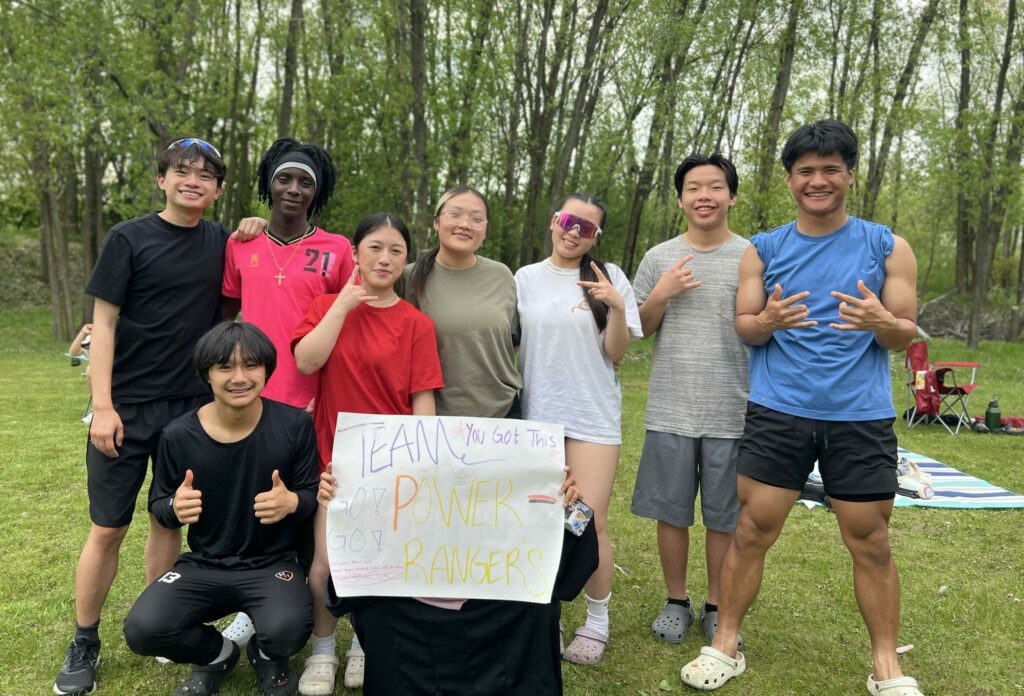
At KOM, our staff create spaces where young people in the community can build confidence, connect with their culture, and explore what’s possible for their future.
This past school year, KOM staff ran two after-school programs at Washington Tech Magnet School and Como Park Senior High School: What’s Next, and Knya’Ni Club. High school students from both schools had the opportunity to be in the two programs, with each program running two days a week.
Getting Ready For What’s Next
“What’s Next really helped me out by introducing me to different colleges, universities, and career options,” reflects a student at the end of the year. “It guided me through figuring out which careers might be the best fit for me, and even taught me how to put together a solid cover letter and resume. Thanks to the program, I feel way more prepared for both school and the working world. I honestly recommend it to anyone, it’s very helpful and beneficial.”
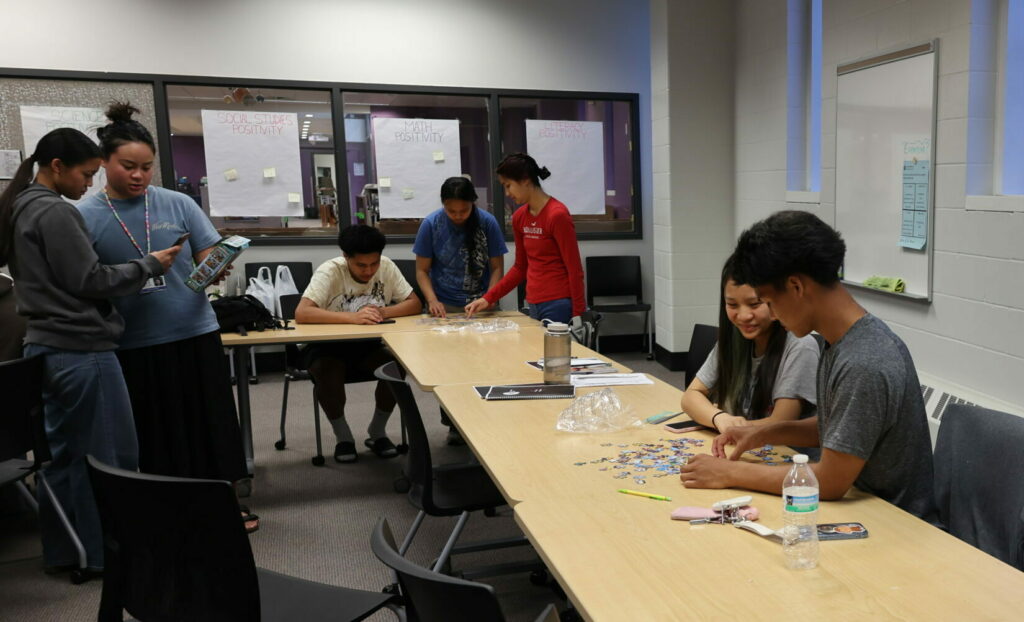
Learning through movement
Mular Lerpwel, our Lead Youth Career and Education Coach, restructured the What’s Next program to create interactive ways of engaging students in thinking about their plans post-high school. “Youth these days need movement, they can’t sit still. Instead of having a presentation, I made them move at the same time as learning about what we taught in What’s Next.”
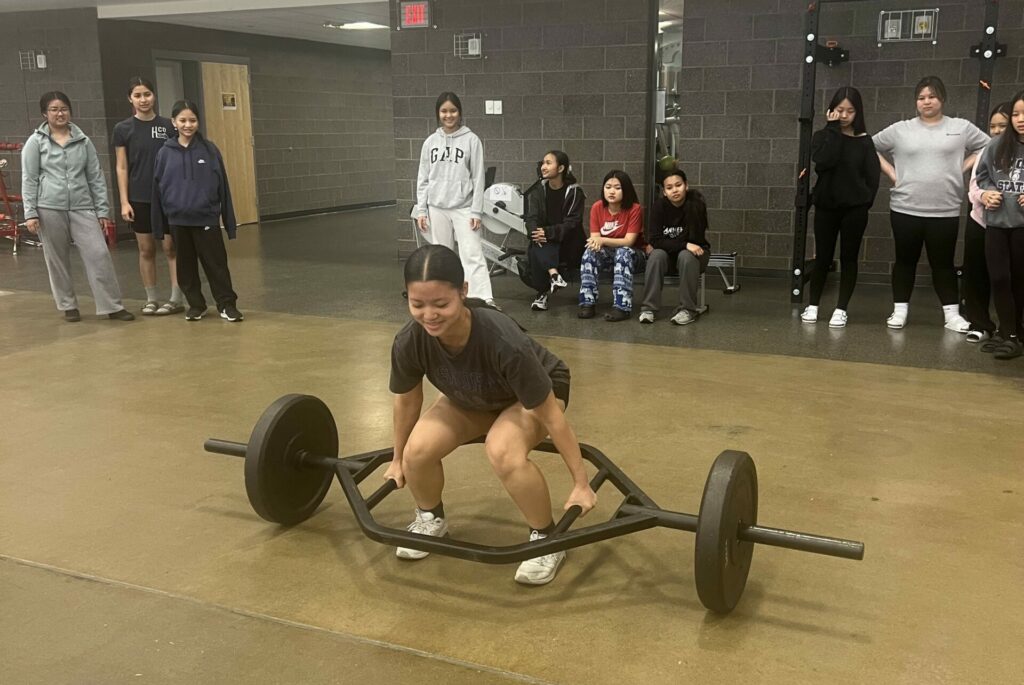
A perfect example of learning through movement, students explored the National Guard for one of their field trips. But instead of touring, Mular organized a workout with her point of contact. They did a simulation of the test that each candidate would go through to be able to serve in the military, getting first-hand experience of what to expect.
One student shares, “every meeting was filled with fun, engaging activities that helped us connect with one another and build a sense of community. I truly enjoyed my time in the club because it was not only exciting, but also meaningful and welcoming.”
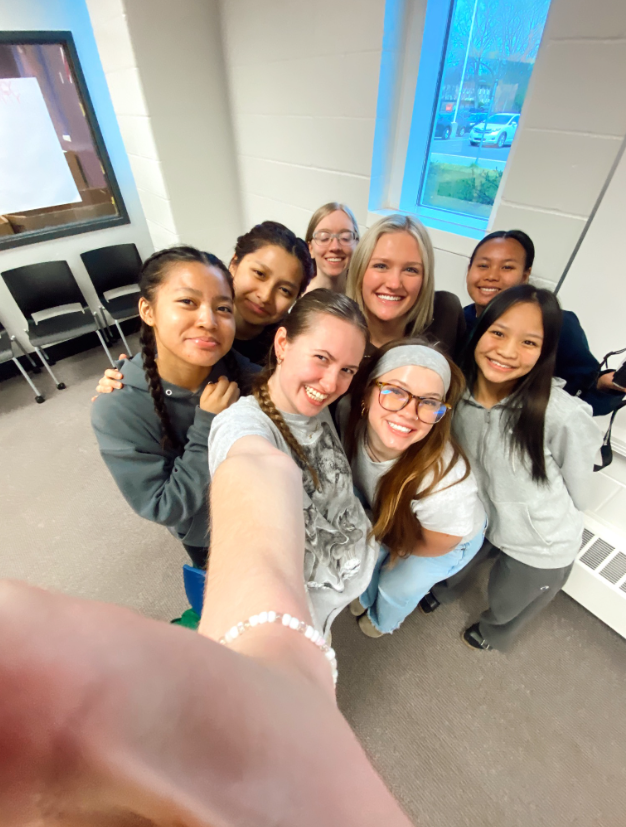
Mentorship and takeaways
Bringing things back to paper and pencil, Mular had all 24 youth keep their own journals to track their learning. One of our volunteer mentors from Bethel University who helped with the program this spring said she loved how determined the girls were to finish their journal assignments before they would do other activities. In the mentor’s words, “Mular is both a pusher and a supporter for her students. She encourages and challenges them.”
About What’s Next, the mentors said Mular runs a well structured program that allows the youth to balance their mixed identities as Karen refugees and American teenagers. Bridget, one of our youth mentors, shares a takeaway of what she learned: “The importance of staying connected with your heritage culture when adapting to a new culture”.
Thinking back on the year, one of our youth shares, “I joined the Karen Club when it first started at Washington Technology Magnet School, not really knowing what it was about or what we would be doing. As I became more involved, I discovered how much the club and KOM support students, especially those from low-income backgrounds. Being part of the club gave me access to new experiences and opportunities I wouldn’t have had otherwise.”
Making Memories, Building Connections
Renamed by our youth themselves, the Knya’Ni Club aims to be an inclusive space for both Karen (Knyaw) and Karenni students. As student Lay Lay shares, “Joining Knya’Ni club was one of the best decisions I’ve made, I got to meet new people and made so many fun memories with them.”
At both Como Park and Washington Tech, 35 students came together twice a week to learn, get homework help when needed, and spend time together. Besides workshops and tutoring, our youth found simple and creative ways to have fun. If you walked by their room in the afternoon, you may have heard lively voices organizing a large group game of mafia.

Ta Htoo shares, “In Karen club I had a lot of fun and we do fun games and activities and my teacher also help me with a lot of my homework when there is a tutoring day.”
Equipping our youth
Some of the after-school workshops were led by our community health team. Teenagers go through many changes in mental and physical health as part of growing up, and we want to create a safe space for them to learn and ask questions. Hsa Hser Ku, our Community Health Educator, talked about mental health and maintaining healthy relationships, both with family, friends, and partners. Our youth also learned about the importance of drug prevention from our other Community Health Educator, Ner Mu.
Youth are often on the front lines of support for their friends and family. The more we can equip them with knowledge and resources, the more empowered they will feel to find help for themselves and those around them.
We hope the connections our youth made will last through their high school years and beyond. “Karen club was such an amazing opportunity for me, I get met new people that I thought I would never actually talk to,” says Eh Moo. “Karen club helps me get through some assignments and definitely better communication with others. I’m glad that they have this opportunity for us and I hope they continue to. For others who will enjoy as much as I did.”
Community Ambassadors
This spring, students from our program stepped up to join a youth-led environmental initiative by the Metropolitan Council. These young leaders explored the impacts of pollution, conservation strategies, and how to communicate for change.
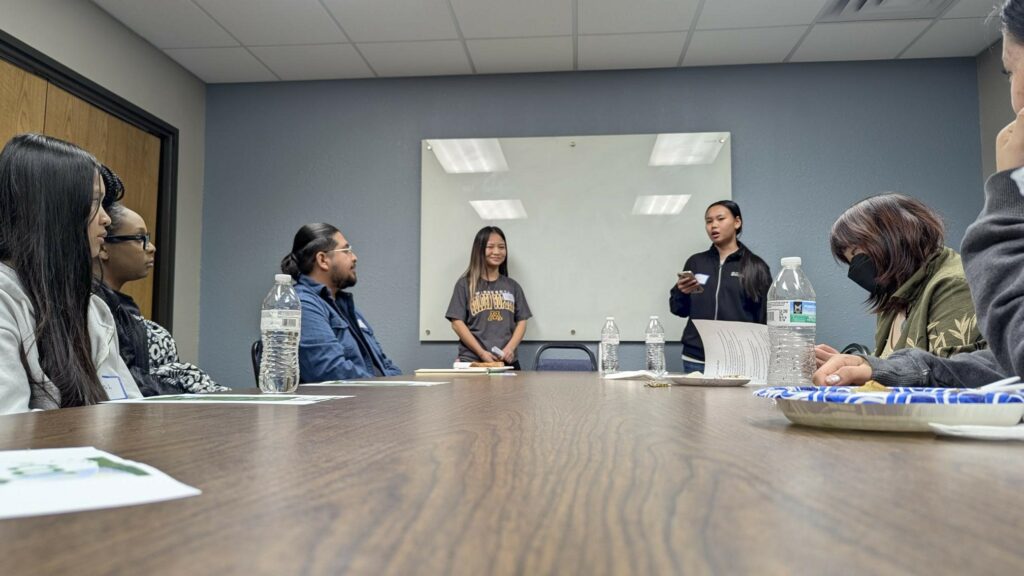
After weeks of dedication, creativity, and collaboration, they wrapped up with powerful presentations that left us inspired. From school campaigns to neighborhood recycling plans, their final proposals were full of real-world solutions. Here’s to the next generation of changemakers!
Summer Program
Sign-ups are open for our KOM Youth Summer Program. We will have one week of programming on July 28th – August 1st from 12-4pm in Saint Paul. Transportation and snacks will be provided. Get your spot today!
Special thank you to our funders for our youth after-school programming: Minnesota Department of Employment and Economic Development Youth At Work, St. Paul Children’s Collaborative, Greater Twin Cities United Way, and the Metropolitan Council.


 (651)788-7593
(651)788-7593


